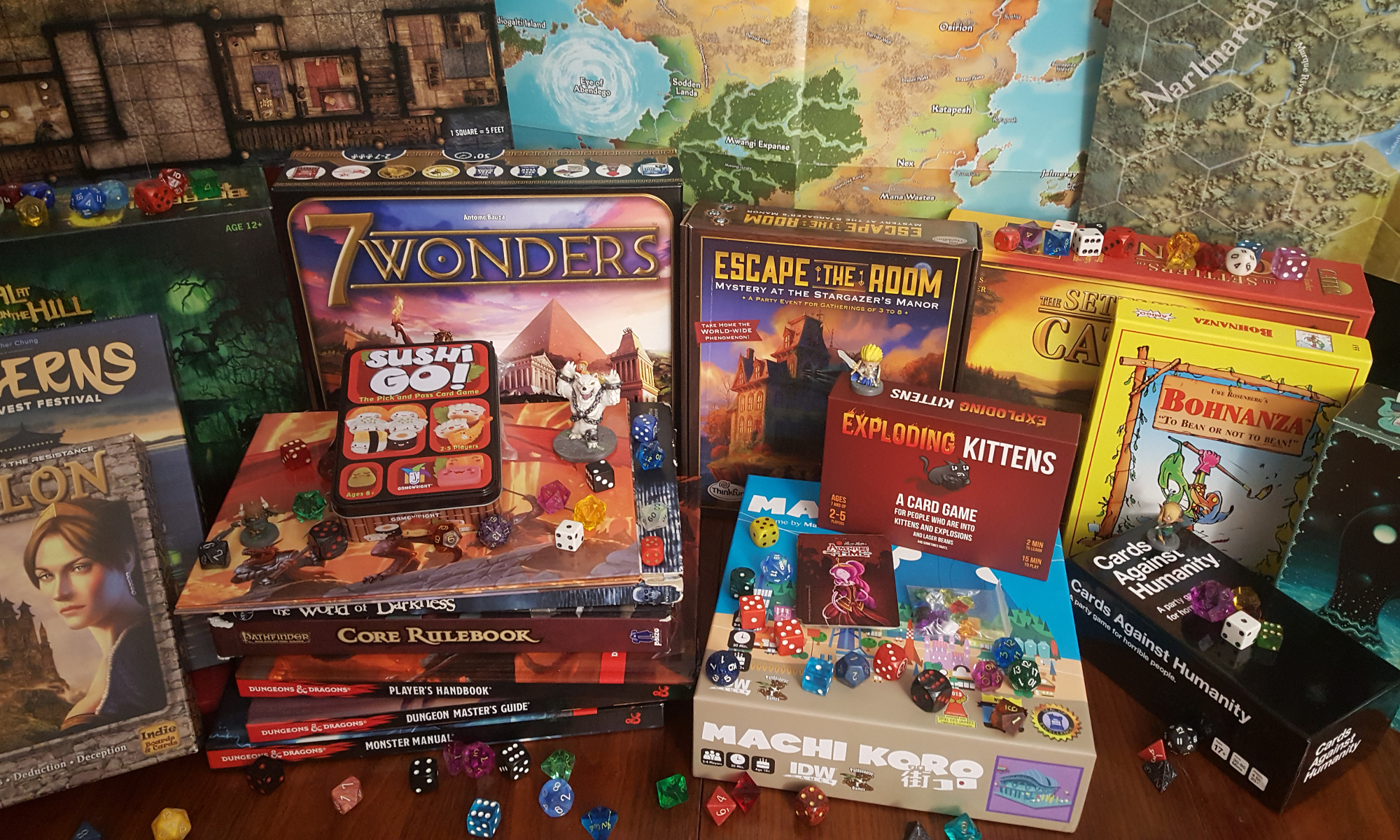Today on Save Vs. Rant, we’re discussing ways to improve as a DM. In this episode, we present tools, strategies and techniques that will help you grow and improve as a DM, ultimately resulting in a better experience for both you and your players.
I’ve joked before that DMing is a subtle form of performance art where you trick a room full of people into thinking that they’re playing a game, and while that’s a rather drastic (and more than a bit pretentious) description of DMing, the ideal is to have the parts that you’re just making up blend as seamlessly as possible with the parts that are set in stone, or exist as part of the game’s shared reality. To that end, we offer 5 more essential tips, each of which is something we ourselves once had to learn.
1. Use Cheat Sheets
One of the most important things that must be true for self-improvement to even be possible is that we need to know where we can improve. If you find yourself looking up certain rules or consulting the exact wording of a spell, it’s probably something you should make a cheat sheet for. In high school and college, this process was often called “taking notes,” and the concept is largely the same. I find, personally, that almost every cheat sheet I make becomes naturally obsolete a little while after I make it. With no effort at all, the things I use on a regular basis internalize and I start to be able to anticipate what results I’m going to find on my cheat sheet until I find that I’m no longer consulting the cheat sheet at all.
Except grappling. I’ll never remember the d20 grapple rules.
2. Use a DM Screen
You know a convenient place for your cheat sheets? You DM screen! Every DM screen in history has had a bunch of useful tables printed on it, and every single one has had something (or even mostly things) I’ve found to be unnecessary for one reason or another. An especially egregious example is the Pathfinder 1st Edition DM Screen, which had the XP progression by level (as if your players aren’t going to obsessively track how close they are to the next level!). By comparison, almost every iteration of the Storyteller’s Screen for the World of Darkness had the rules for fire and electrical damage. Although these weren’t exceptionally complicated, they weren’t perfectly intuitive and having them handy made it a lot easier to mitigate electrical and fire damage when they happened to occur unexpectedly (which, more often than not, they did).
But more than a convenient place for cheat sheets, a DM screen is a great way to organize and shield your notes, giving you the ability to peruse them with confidence, knowing that your secrets are safe from the (often accidental) prying eyes of your players. And while we at Save Vs. Rant are neutral in the war between the fudgers and the never-fudgers, nearly every game will periodically benefit from the ability to make a roll in secret and conceal the outcome from the players.
Secrecy is a form of suspense building, which can be a very good thing.
3. Realism Isn’t Consistency (and Neither Is Automatically Good)
I admit that this is a mouthful, and without getting too postmodern in this semi-lighthearted gaming blog, I want to expound on what we mean by this. Almost every attempt at granular realism – the realism of having charts and numbers and percentages and bell curves and ideals – is thwarted by the reality that the world is a complicated place where counter-intuitive outcomes are common. Alan Pinkerton – one of those human beings blending a less than charming mix of genuine bravado and reprehensible morals – was a rugged soldier who died from an infected tongue.
I’ve learned not to say, “No one,” because I cannot possibly anticipate the staggering diversity of personal preference, but few indeed are likely to be interested in a game where your character might be one of the greatest swordsmen in the world, but is felled by trenchfoot-induced gangrene. Fewer still are excited about games where you have to track the ongoing status of mundane equipment. Even such necessary bookkeeping as tracking rations and supplies might detract from the best parts of the gameplay experience.
There’s a reason that one of the most common innovations in roleplaying games has been abstraction of success and tracking. For many of us, the experience of playing D&D – tracking hit points, calculating attack bonuses and considering positioning in light of movement – is at the sweet spot for this kind of concrete empirical presentation. One common “innovation” that I used to see get bandied a great deal was having some sort of “fatigue pool” for fighters to limit how much they could fight, and while this is an interesting idea in theory, every implementation I’ve ever seen has turned one of the most straightforward gameplay experiences into a chore. Don’t chorify your game – Realism isn’t the one thing you should be hanging your hat on.
And while there’s a lot to be said for consistency, don’t convince yourself that having a 100% internally consistent world is the same as having a world that you can play in. Even a casual sociological or geopolitical analysis of virtually any of the most popular campaign settings will usually unearth some pretty glaring inconsistencies or mind boggling omissions by writers or characters within those worlds, but they remain popular nonetheless for good reason. The most important question I ask when I look at a new setting or game is: what stories can we tell with this that we couldn’t tell in any other game system?
4. Use Your Senses
In our episode on Read Aloud Text, we discussed how much time you have to describe the environment to your players, and the answer is: not a lot. Make your descriptions count! Engage all the senses! For the majority of players, sight and sound will provide the majority of the atmosphere both for the players (who will listen to the DM and observe the props and miniatures they present) and their characters (who will rely primarily on their eyes and ears to learn about their environment).
Don’t neglect the other senses, though! The sense of smell is most strongly linked to memory – even described smells can bring memories bubbling to the surface. Touch moments need to be things the players feel intentionally – changes in temperature, pressure and airflow are entailed in this sense. Even taste can have a place in the dungeon, putting the metallic tang of blood in the character’s mouth after a jarring fall or the dirty taste of airborne dust.
Finally, consider the obscure senses. Equilibrioception is the sense of balance, and it can be thrown not only by unexpected or sudden movement, but changes in noise, pressure or footing. Proprioception is the way we detect where our body is without looking at it. Kinaesthesia is our awareness of movement, sometimes triggered unexpectedly when, say, an adjacent train starts moving while we are sitting still. While these more obscure senses might not come up as frequently (and please don’t invoke these too often), they can add a special punch to atypical situations.
All of this, ideally, is done without telling your players how they or their characters react. Instead, let them dictate what the characters do and how they feel. Tell them what they experience and let them tie it to emotion and action. And, speaking of emtion…
5. Know Your Player’s Limits and Boundaries
We’re going to talk about limits, boundaries and consent in gaming a lot here at Save Vs. Rant. Why? Because they’re important issues that have not only historical significance in gaming’s shaky culture of inclusion, but keep coming up in contemporary settings. In June of this year, a DM running a game at UK Games Expo ran a particularly nasty scene (CW if you wish to look into this further: sexual assault scenarios) that should not have been conducted without enthusiastic consent – much less without a warning! Beyond showing that this DM cannot be trusted with players (his name is Kevin Rolfe, and I would NEVER play with him after that), those players now have to carry the baggage of that appalling experience with them into other games. An implicit bond of trust has been broken, and they might have difficulty enjoying other games with DMs they don’t already trust.
No one should feel that they’ve been tricked or coerced into an uncomfortable, unpleasant or hostile experience. Players – and DMs as well! – should feel that they’re in a safe place with friends where they can explore the stories they enjoy with themes they find agreeable. This might, for some groups, include extreme or disturbing content. As a general rule, I encourage people to explore topics they might find uncomfortable, difficult or scary in the context of a roleplaying game, but I never want those players to feel trapped in something they don’t want to be a part of. For me, roleplaying has on many occasions been a chance to explore themes, ideas and fears that I otherwise would be largely content to ignore or avoid, and I really feel that this has been a force for positive change in my life.
There are no one-size-fits all solution that can be applied to every roleplaying group. Different people have their own triggers. Some of us don’t even know what crosses our lines until we see it. That’s why we recommend not only clearing the most controversial, taboo or difficult themes and scenarios from your game or character background with the rest of your group in advance, but also having an X card on the table and be ready to interrupt the action if a player is uncomfortable or in distress.
You can find a link to Monte Cook Games’ excellent Consent in Gaming publication HERE. The resources is free and well worth the read. Don’t ruin a convention. Don’t hurt your friends. Don’t alienate your players. Let’s create memories and experiences that everyone can enjoy and appreciate.

